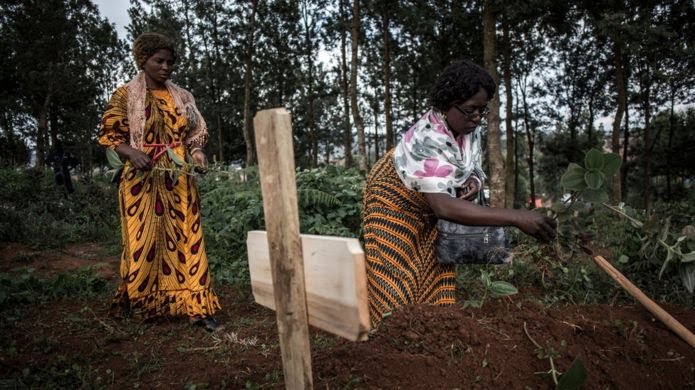The world is entering “a new phase” where big outbreaks of deadly diseases like Ebola are a “new normal”, the World Health Organization has warned.
Previous Ebola outbreaks affected relatively small numbers of people.
But the Democratic Republic of Congo is dealing with the second largest outbreak ever, just three years after the world’s largest one ended.
The WHO said countries and other bodies needed to focus on preparing for new deadly epidemics.
What is Ebola?
Ebola is a virus that initially causes sudden fever, intense weakness, muscle pain and a sore throat.
It progresses to vomiting, diarrhoea and both internal and external bleeding.
People are infected when they have direct contact through broken skin, or the mouth and nose, with the blood, vomit, faeces or bodily fluids of someone with Ebola.
Patients tend to die from dehydration and multiple organ failure.
Presentational grey line
There have been 2,025 cases of Ebola and 1,357 deaths from the virus during the outbreak in the Democratic Republic of Congo.
The largest outbreak, in West Africa in 2014-16 affected 28,616 people mostly in Guinea, Liberia and Sierra Leone. There were 11,310 deaths.
Yet the 12 outbreaks between 2000 and 2010 averaged fewer than 100 cases.
Source : BBC


